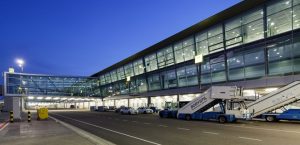
PJSC Farmak pharmaceutical company (Kyiv) in April-July exported to the EU propofol, a medication that is used for artificial lung ventilation of patients with coronavirus (COVID-19), worth more than $635,000,
The company told Interfax-Ukraine that due to the shortage of this medication in the EU and its active use for treatment of COVID-19 patients the supplies of the medication were carried out without its registration at the EU’s profile agency, which is a mandatory condition for sale of drugs in Europe.
“Such an exclusion is connected with the crisis, and at the same time it shows the level of confidence in Ukrainian manufacturers and quality of their products,” the company said.

First phase of the unified public electronic system in the field of construction and development has been launched in Ukraine as part of a pilot project that will last until November 30, 2020, the press service of the Ministry of Communities and Territories Development has said.
According to the report, the implementation of the project will allow receiving services in the field of urban planning activities through an account, enhancing openness and transparency, will allow receiving up-to-date information on the status of document consideration, and automating the process of checking the completeness of data in documents.
“The introduction of first phase of the unified public electronic system in the construction industry will reduce paperwork, neutralize the biased attitude of officials and reduce the likelihood of submitting forged documents,” the press service said, citing First Deputy Minister of Communities and Territories Development Vasyl Lozynsky.

The government will draw up a list of strategic industries and submit it to the Verkhovna Rada of Ukraine for approval, Deputy Prime Minister for Strategic Industries Oleh Urusky has said.
“Surely, this should be formalized by a common document. It should be worked out by the government and submitted to the Verkhovna Rada for approval,” Urusky said in an exclusive interview with Interfax-Ukraine.
According to him, such a list will help determine the priorities of the government regarding support for industries, but the future Ministry of Strategic Industries will deal with all sectors without exception.
“On the other hand, the new ministry, which will be created, will become a ‘home’ for all sectors. The entire industry will be able to count on it,” Urusky said.

The construction of a cargo terminal at Boryspil International Airport (Kyiv region) is scheduled to begin this fall, the press service of the European Business Association (EBA) has said, following a meeting of Deputy Infrastructure Minister Oleh Yuschenko and airport representatives.
According to the EBA, with reference to the Ministry of Infrastructure, design work is currently underway to prepare for the construction of the cargo terminal, for which additional land plots have already been allocated. Provided that all preparatory work is completed on time, construction will begin in the fall and should be completed 16 months later.
“Thus, according to optimistic estimates, Boryspil airport will receive a new cargo terminal by the end of 2021,” the report says.
The association notes that the construction of the terminal will be carried out at the expense of attracted credit funds, which, according to representatives of Boryspil airport, have already been previously agreed upon. In turn, the Ministry of Infrastructure is negotiating, in particular, with Asian countries on attracting additional transit flows and is working on simplifying document flow.
“The business community approves such news, because logistics companies have long been awaiting the implementation of this project. The association’s logistics committee includes companies that transport goods, including by air, in international traffic and within Ukraine. Business representatives have a significant share in freight flow, which passes, in particular, through the cargo terminal of Boryspil airport,” the EBA said.
One of the main reasons that currently hinder the development of air cargo transportation in Ukraine, the association calls the worn-out infrastructure of the cargo terminal of Boryspil airport, since the structure of the terminal and its capacity have remained unchanged for many years. In this regard, problems regularly arise during the transportation of goods, especially in winter, when due to bad weather the airport cannot cope with the volume of load, the association explained.

Deputy Head of the President’s Office of Ukraine Ihor Zhovkva and South Africa Ambassador Andre Johannes Groenewald discussed the further development of the bilateral cooperation.
“The parties identified the priority steps to intensify the political dialogue between the two countries and discussed the further schedule of high-level contacts, taking into account the development of the epidemiological situation in the world,” the press service of the President’s Office said.
During the meeting, Zhovkva spoke about the importance of further deepening economic cooperation and noted that Ukraine considers South Africa as one of the most promising trade partners in Africa.
The importance of closer and more constructive interaction between Ukraine and South Africa under its non-permanent membership in the UN Security Council was also emphasized.
“During the meeting, a number of other issues of a bilateral nature were also discussed, including the interaction of the two countries in the fight against the [coronavirus] COVID-19 pandemic and the modalities of the early evacuation of Ukrainian citizens from South Africa,” the presidential press service said.
Zhovkva congratulated the South African Ambassador on Nelson Mandela International Day, which is annually celebrated on the birthday of the politician.